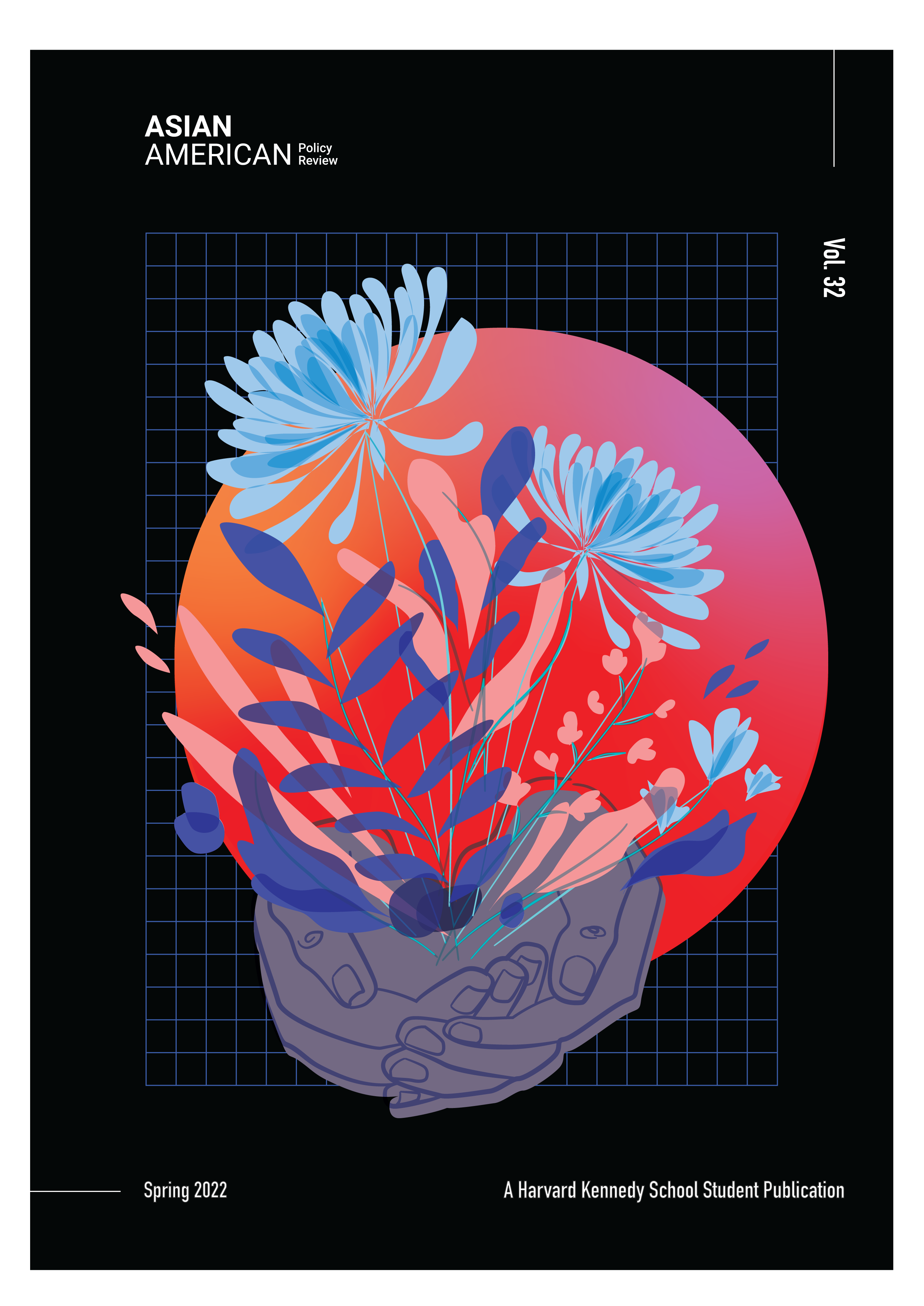Fifty years ago, James Baldwin penned the following words in No Name in the Street: “It is certain, in any case, that ignorance, allied with power, is the most ferocious enemy justice can have.” This year, amidst the weight of continued injustice that the COVID-19 pandemic has both revealed and exacerbated, Baldwin’s words are as resonant as ever. Our moment calls for bold, incisive voices—ones that push the bounds of our knowledge, speak truth to power, and articulate the means by which public policy can be an instrument of justice.
We are honored to publish many such voices in the 32nd edition of the Asian American Policy Review (AAPR). Several pieces this year illuminate, in novel and significant ways, the ongoing toll of this pandemic on the Asian American and Pacific Islander (AAPI) community. They surface the degree to which trauma and marginalization have permeated not only our families and workplaces but also our culture and broader systems. At the same time, this year’s edition also offers us lenses through which to consider the enduring resilience of the AAPI community. In the face of hate, we have held space to grieve while also bringing forth new, generative modes of storytelling, political engagement, and representation.
In this paradoxical yet familiar tension between loss and hope, how do we continue to call out inequities and build power for our community? When the dust of this season settles, many of our most complex challenges will remain. How can we use policy as a means to fundamentally reimagine our current realities and then co-construct a different future together? These pieces affirm that the antidote to injustice does not center on withdrawal or seclusion. Our collective work, this issue insists, must instead revolve around solidarity and co-creation to disrupt the status quo. We invite AAPR’s readership to join us in this endeavor as we seek a more just and inclusive tomorrow for communities on the margins.
I would like to extend my deepest gratitude to the individuals who made this publication possible: Martha Foley, Assistant Director of Student Services at the Harvard Kennedy School; Nancy Gibbs, Faculty Advisor to the Kennedy School Journal Program; esteemed members of the AAPR Advisory Board; authors and contributors to this 32nd edition of AAPR; and all AAPR staff editors and directors for the 2021-2022 academic year. Thank you for your support and dedication to this ever-critical mission of uplifting the AAPI community through scholarship, analysis, and policy advocacy.
In solidarity,
Sarah Lin
Editor-in-Chief
